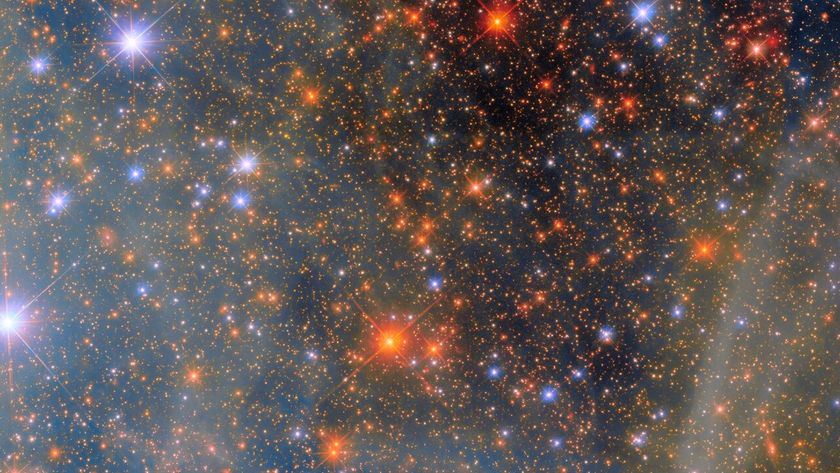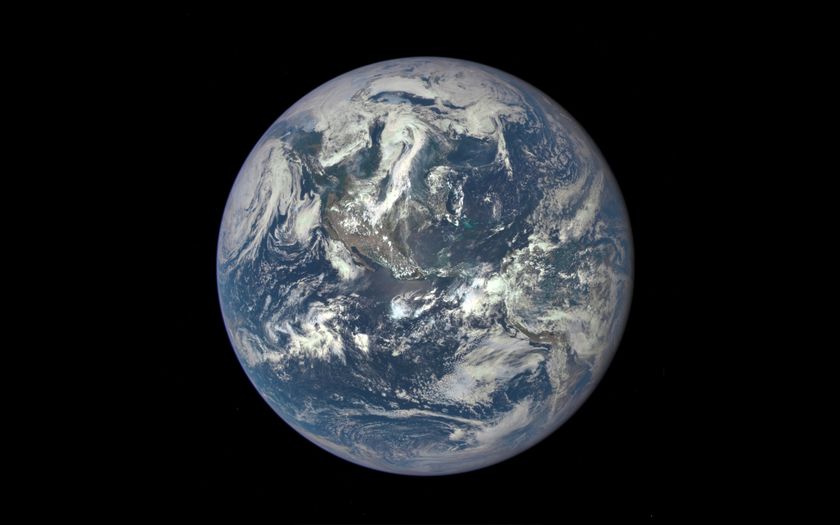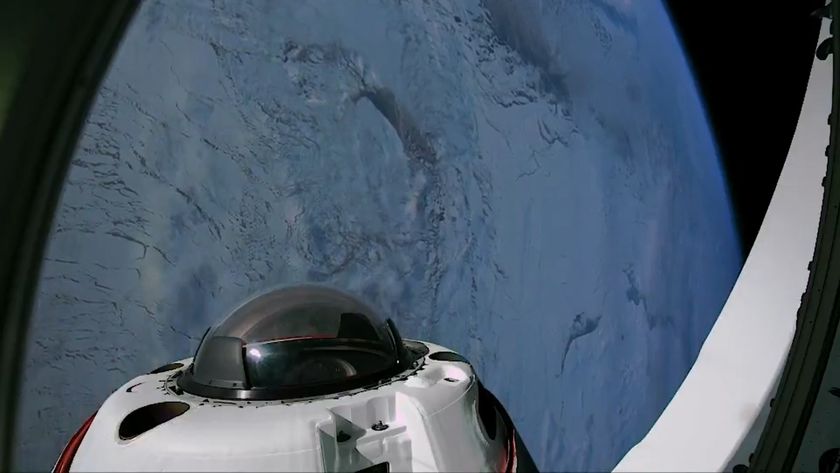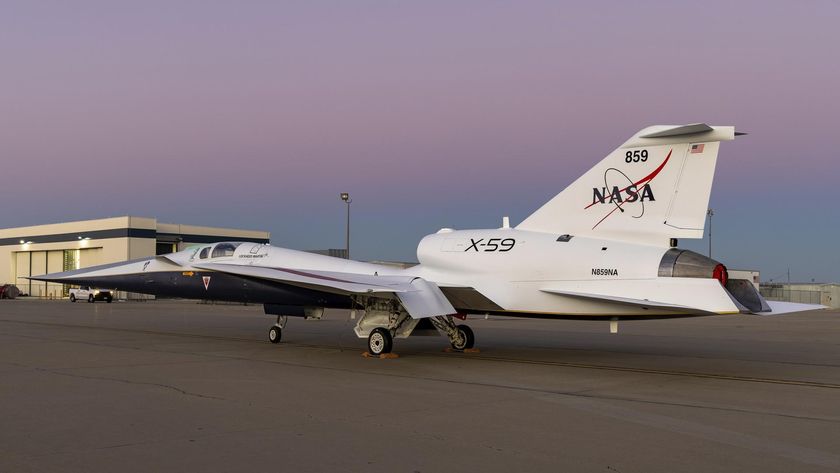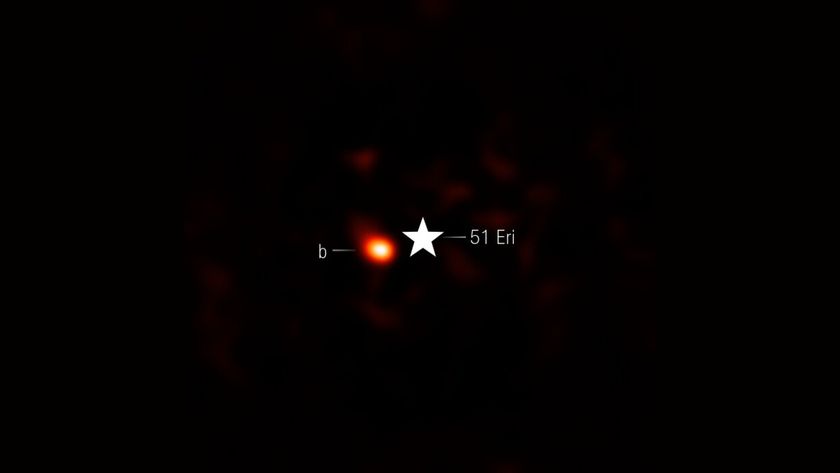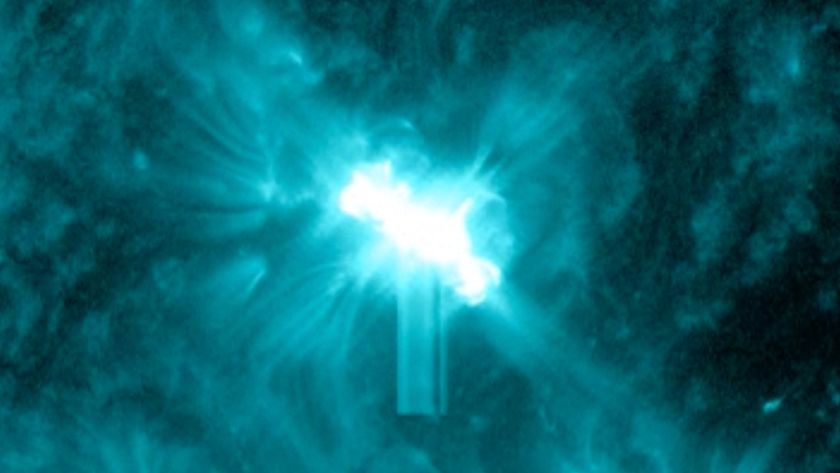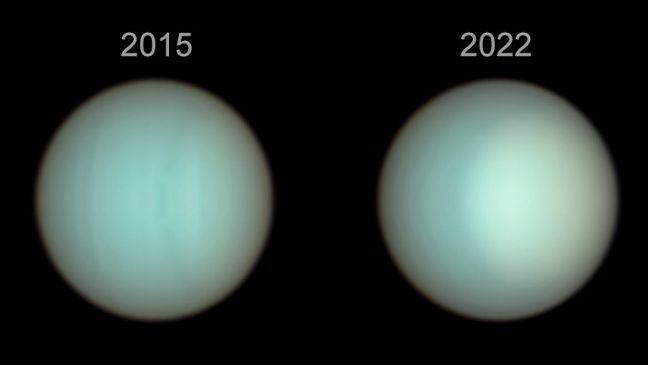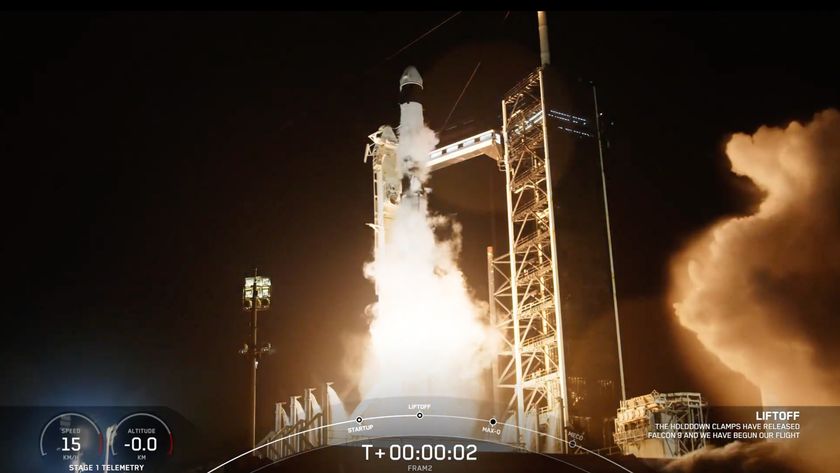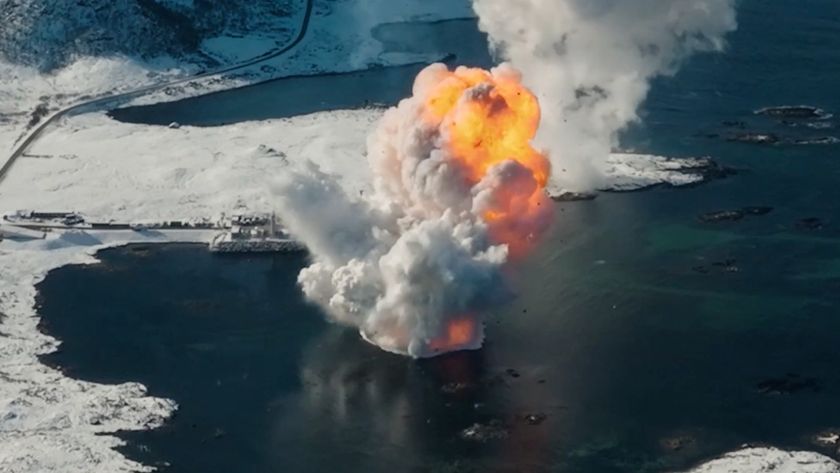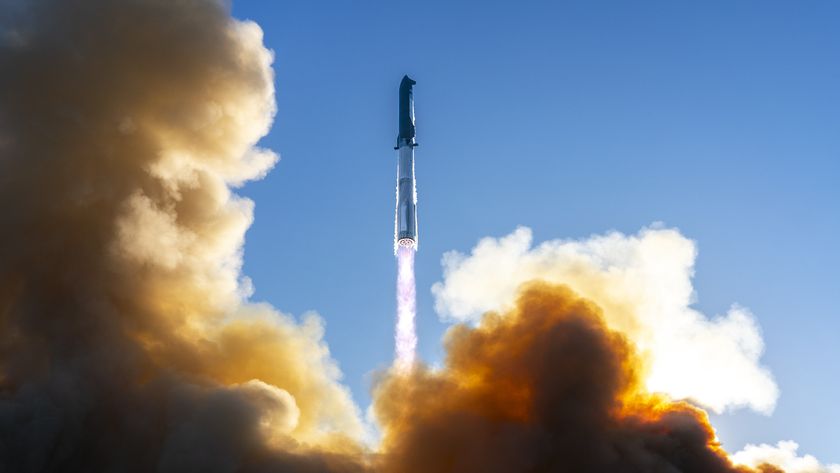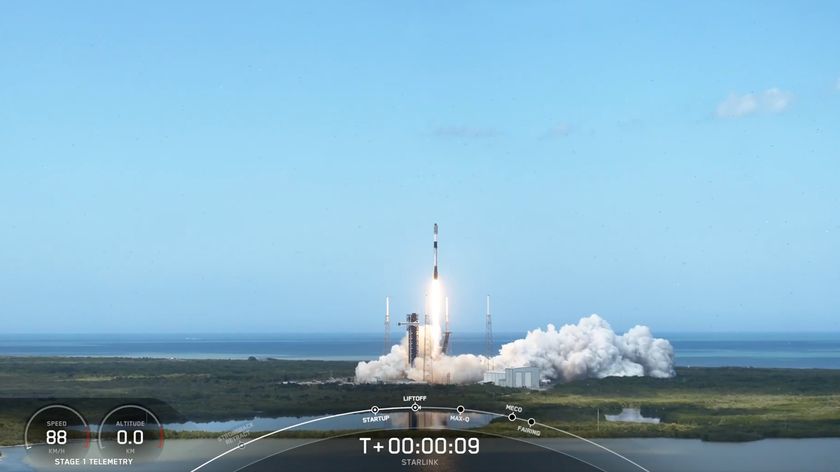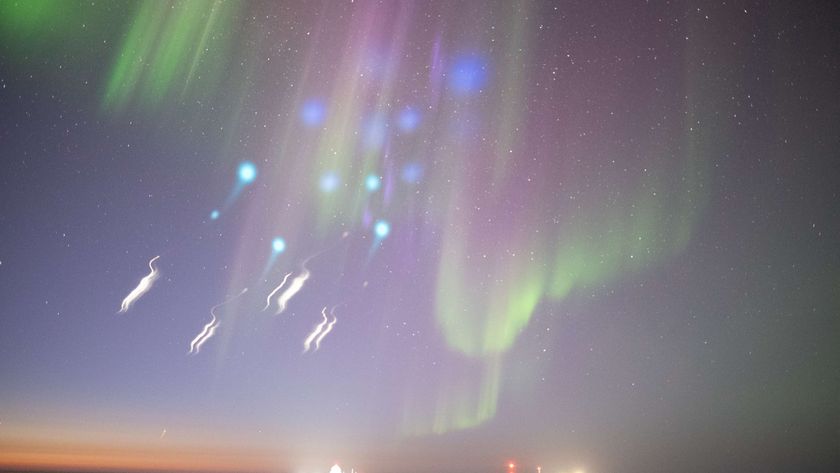Cosmic Photo Reveals Majestic Spiral Galaxy In Packed Cluster
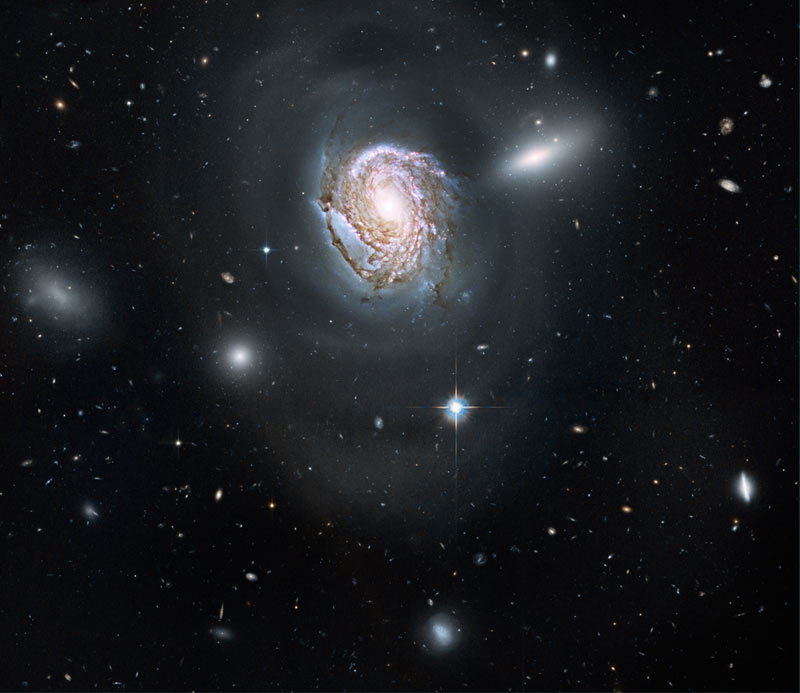
A majesticspiral galaxy swirling with dark tendrils of gas stands out in a new photo ofone of the most densely packed regions of the universe.
The newphoto shows the galaxy NGC 4911 in the dense Coma Cluster of galaxies. A clutchof newborn stars can be seen sparkling inside pink hydrogen gas behind darkerlanes of dust and gas in the image, which was taken during a long exposureusing the Hubble Space Telescope. [New photo of galaxy NGC 4911.]
The outerspiral arms are visible as a smoky white glow amidst a background packed withother galaxies.
Almost 1,000galaxies reside in the ComaCluster, making it one of the densest collections of galaxies in the universe.Collisions among these galaxy systems continue in the present epoch to churnstar formation at vigorous rates and alter one another's shapes.
In thisimage, the gravitational influence of nearby galaxy, called NGC 4911A, in theupper right is exerting a tug on the galaxy's arms, loosening material thatwill eventually be dispersed through the Coma Cluster's center to fuel further starsand clusters between existing galaxies.
The ComaCluster is 320 million light-years away in the constellation Coma Berenices.
The imagewas formed from a considerably long 28 hours of exposure time, the SpaceScience Telescope Institute said in a statement. It combined observations fromthe 2006, 2007, and 2009 Wide Field Planetary Camera 2 and Advanced Camera forSurveys.
Get the Space.com Newsletter
Breaking space news, the latest updates on rocket launches, skywatching events and more!
- ImageGallery: Amazing Galaxies
- The 10 Most Amazing Hubble Discoveries
- StrangeHook-Shaped Galaxy Photographed By Hubble Telescope
Join our Space Forums to keep talking space on the latest missions, night sky and more! And if you have a news tip, correction or comment, let us know at: community@space.com.
Zoe Macintosh is a science writer who covered human spaceflight, astronomy and science for Space.com in 2010. She also covered general science for Space.com's sister site Live Science. Zoe studied English literature and physics at Smith College, where she also wrote for the Smith Sophian. Her work has also appeared in the National Association of Science Writers website.
